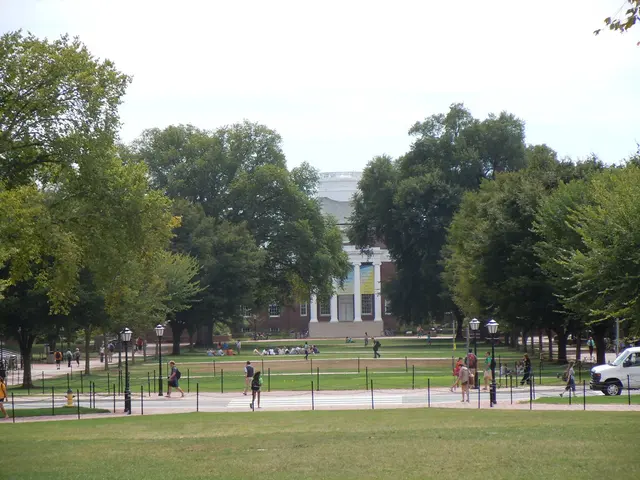Controversy swirls around the proposed railway link between Switzerland and Sweden, raising questions and concerns.
Switzerland's government is planning to expand international train routes, with one proposed connection being a direct route from Basel to Malmö, Sweden. However, the controversy surrounding the allocation of funds for this new night train service has sparked a heated debate among lawmakers and critics.
The Swiss Federal Office of Transport (FOT) has planned to allocate 47 million Swiss francs between now and 2030 to subsidise this night train route. Critics, such as MP Thomas Hurter from the Swiss People's Party, argue that this is a waste of taxpayer money, with each train journey receiving a subsidy of approximately 30,000 francs to cover costs like train paths, energy, personnel, and rolling stock maintenance.
The Parliament must approve the funding annually, and the initial federal budget for night trains was reduced from 30 million to 10 million francs per year for cost-cutting. The Federal Council has also expressed reluctance to increase the budget beyond the current figure, leaving limited funds for other international night train projects in Switzerland.
Critics like Hurter suggest that the money would be better spent improving existing train routes, dubbing the Basel-Malmö line as a project without a guaranteed future. The high subsidy level for this single international night train line has become a point of contention, with many questioning whether it represents an efficient use of public funds or constitutes an unwise expenditure given other pressing transportation needs.
In addition to the Basel-Malmö line, the government's plans include the expansion of direct connections to cities such as Bologna (extended to Florence) and Genoa, which will now run to La Spezia. Starting in April 2026, three night trains per week will run between Basel and Malmö, via Copenhagen, in each direction.
Meanwhile, a direct train from Lausanne (via Geneva) will run to Marseille seasonally, from April to October, between Thursdays and Mondays. The new 2026 timetable will also use modern Nightjet trains with mini cabins, private toilets, and showers for connections between Zurich and Basel, Hamburg, Amsterdam, and Vienna.
Despite the controversy, the outcome of the Parliament's decision to approve the funding for the new night train service from Basel to Malmö is yet to be determined. The spending strategy for international train networks is not universally supported among MPs, and it remains to be seen whether the Parliament will approve the full funding required for the project.
[1] SwissInfo.ch. (2022, March 24). Swiss Parliament to debate night train funding. Retrieved from https://www.swissinfo.ch/eng/swiss-parliament-to-debate-night-train-funding/46848968 [2] SwissInfo.ch. (2022, March 24). Swiss People's Party MP criticises night train subsidies. Retrieved from https://www.swissinfo.ch/eng/swiss-peoples-party-mp-criticises-night-train-subsidies/46848970 [3] SwissInfo.ch. (2022, March 24). Swiss Federal Council cuts international train network spending. Retrieved from https://www.swissinfo.ch/eng/swiss-federal-council-cuts-international-train-network-spending/46848969
Finance ministers are discussing the debate surrounding the allocation of funds for the proposed night train service, which is part of Switzerland's expansion of international train routes. Critics argue that the proposed allocation of 47 million Swiss francs for the Basel-Malmö line, resulting in a subsidy of approximately 30,000 francs per train journey, may not be an efficient use of public funds given the pressing needs in the transportation industry.




